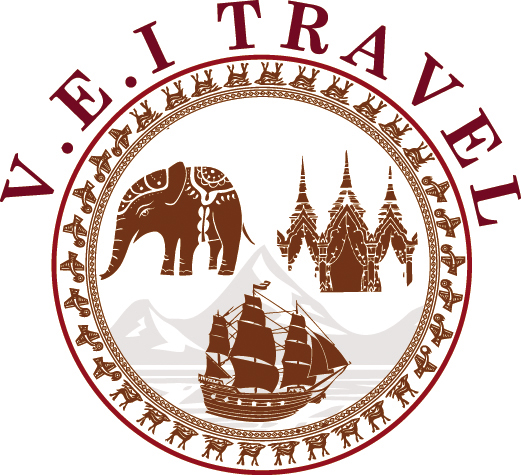April 30 and May Day were our national holiday, plus weekend, so we had a long holiday this year. Myself and two Vietnamese girls rented a 4 seater car with driver and traveled 192km to Mộc Châu highlands in north west Vietnam. Mộc Châu is a district in Sơn La province and this place is off the beaten track.
It's also home of some ethnic minority groups such as the Thai, H'mong, Muong etc. At altitude 1050m, Mộc Châu has cool climate and it's good for diary farming and tea plantations. Mộc Châu milk is a famous brand name in Vietnam, along with Vinamilk
.jpg)
April 30, 2010 - We left Hanoi at 7:30am and traveled along the National Highway No. 6. When we were going up mountains, at one section, it was so foggy that the visible distance was only a few meters and our car had to follow the white painted line. It took us 4 and a half hours to get to Mộc Châu from Hanoi with two stops on the way. Even though it was a national holiday and every tourist site in Vietnam was crowded, it was pretty quiet in Mộc Châu and we didn't see any tourists at the sites. The only thing we found was that the big hotels in the town were fully booked in advance. In the afternoon we planned to see Dải Yếm waterfall, but the locals said it was dry there and no water as this time was the end of the dry season.
.jpg)
We decided to visit a couple of villages (Bản Búa and Bản Áng 2) where the Thai ethnic minority people are living. While walking around Bản Áng 2 village to take photos of stilt houses, we were invited to come in a local house and a Thai woman even climbed up a plum tree at her garden to pick plums for us. We sat down to drink tea on wooden floor of her house and talked to her. We wanted to pay for the plums but she refused. I especially like the view from corridor of her house. From there we could see mountains, other stilt houses, gardens and fields. There was a traditional dance show in the evening (perhaps some festival), however it was raining, so we couldn't go back to this village.
.jpg)
May Day 2010 - We went to the tea plantation hills which are located some kms from the town. It was a day off work, so we didn't see any farmers at the site. We climbed up the hills then went down to other fields. The sun was just shining at 10am before we left for the diary farming area. We passed by some milking cows and walked to grass fields. These cows are owned by local households and they milk twice per day, at 5am and 4pm. The cow milk is then sold to Mộc Châu Milk Factory. A cow costs VND 20-25 million (US$1,000 - 1,300) and a liter of milk can be sold at VND 10,000 (50 US cents).
These cows can milk for 15 years. A normal household can sell 180 liters of milk per day, while the best one can produce 500 liters. So they can earn some hundreds of US$ per day, however they have to import grass from Australia then mix with Vietnamese grass as a food for the cows.
On our way back from Mộc Châu to Hanoi, we saw a group of blue H'mong people having lunch by the road. Their food was so simple, only rice, vegetables and water taken from stream. I was so sad to see their food and I asked them "No meat and egg?". In the big cities we have too much food and wasted them. At least they have some things that we don't. The have fresh air, beautiful landscapes, organic vegetables, plus doing exercises, which make them strong.
.jpg)
There are two villages of blue H'mong people near Mai Châu valley. We saw Lóng Luông village on the way, but decided to turn into the road that leads to Pà Cò village. There are some groups of H'mong people living in north west Vietnam. I've seen black H'mong in Sapa, flowery H'mong in Bắc Hà and blue H'mong in Mộc Châu. Hopefully, I will see red H'mong in Suối Giàng (Yên Bái province) someday in the future.
The difference is the color of their skirts. Before the trip I heard that the two villages of blue H'mong people in Mộc Châu involved with drug smuggling and that we should avoid hitchhikers etc. We saw some houses in Pà Cò village and found H'mong people were nice to us. The second warning is that you should ask for permission when you want to take photos of little H'mong girls over there, as their mothers don't want their daughters to be photographed.
.jpg)
The highlights of my two day trip were the beautiful mountain scenery on the way, friendly Thai and H'mong people we met, fresh air, and great view of the tea plantation hills and Mộc Châu diary farm.
Travel tips: Our car rental cost VND 2.3 million (US$120) including meals and hotel for drivers. The total distance on this trip is 420km including two way drive and visit to the sites. There are two towns where you can find hotels. We chose Mộc Châu farm town (thị trấn nông trường Mộc Châu) to stay for a night as this town is near the tea plantation hills and diary farm. Mộc Châu town (thị trấn Mộc Châu) is 3km away from the first one. You can go to Mộc Châu by local bus. The bus station is located in Hà Đông town in Hanoi.
 Francais
Francais  Vietnamese
Vietnamese